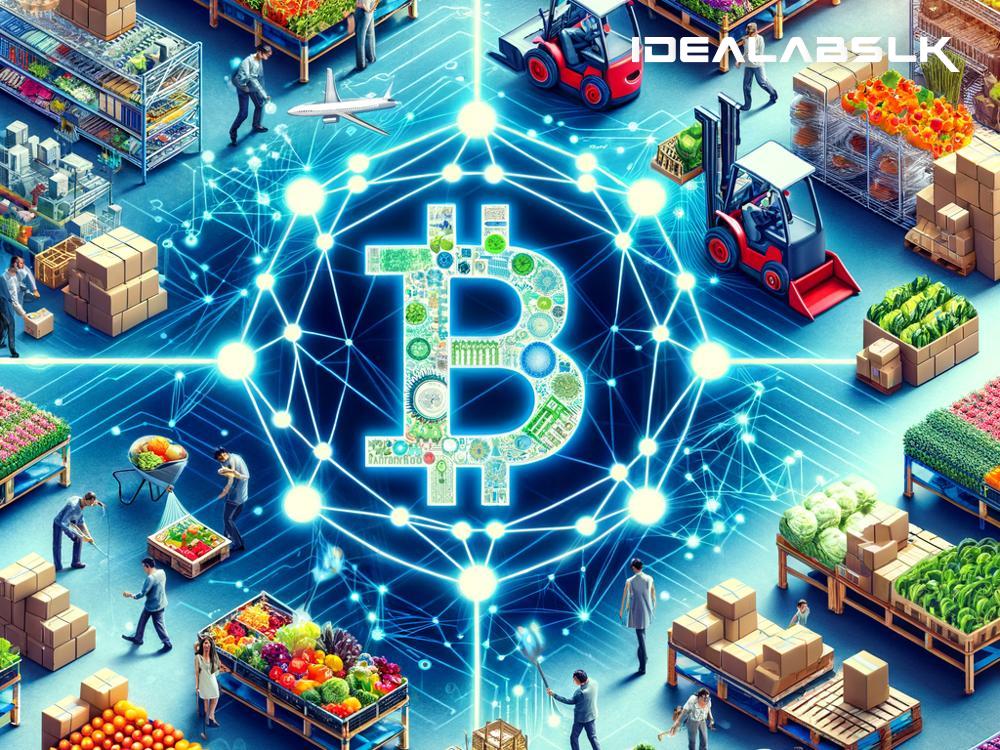Blockchain's Role in Transparent Supermarket Supply Chains: A Simple Guide
In today's digitally driven era, where the clamor for transparency and trust in the food we consume has reached its peak, blockchain technology emerges as a beacon of hope. Often discussed in the realm of cryptocurrencies like Bitcoin, blockchain's applications extend far beyond, revolutionizing various industries, including the supermarket supply chain. But what exactly does this mean, and how does it work? Let's break it down into simpler terms.
What is Blockchain?
Imagine a digital ledger that is accessible by various stakeholders, but no single entity can tamper with it. This ledger records transactions in blocks, and each block is linked to the previous one, forming a chain - hence the name, 'blockchain.' What makes it unique is its transparency and security. Every transaction is visible to all participants and is encrypted, making it almost impossible to alter once recorded. This characteristic makes blockchain an excellent tool for tracking the journey of food products from farm to fork.
The Problem with Traditional Supermarket Supply Chains
Supermarket supply chains are complex. A product like a packet of strawberries involves farmers, pickers, packers, shippers, and retailers before finally reaching the consumer. This complexity makes it difficult to trace the origin of products or identify where things might go wrong, such as contamination or spoilage. Historically, this lack of transparency and accountability has resulted in food safety issues and increased waste. Moreover, consumers today demand to know more about the products they consume, including their origin, if they are organic, or if the workers involved were fairly compensated. Traditional systems often fall short of providing this level of detail.
Enter Blockchain
Blockchain has the potential to revolutionize how we track and authenticate supermarket products. By recording every transaction or movement of the product on the blockchain ledger, every stakeholder in the supply chain, including the end consumer, can trace its journey. Let's simplify this with an example.
Imagine you’re buying a bag of coffee. With blockchain, you could scan a QR code on the packaging with your smartphone, and instantly, you’d see the entire history of that coffee. You’d know where the beans were grown, when they were harvested, how they were stored, who shipped them, and how they ended up on the supermarket shelf. This level of transparency is revolutionary.
Benefits of Blockchain in Supermarket Supply Chains
- Transparency and Trust: Consumers can verify the authenticity and safety of the food they purchase, fostering a deeper trust in retailers and brands.
- Reduced Food Fraud: Knowing the exact origin and journey of products makes it harder for unethical practices like relabeling expired goods or selling non-organic produce as organic.
- Improved Traceability: In case of a food safety issue, blockchain can quickly pinpoint the problem's source, allowing for faster recalls and minimizing risk to consumers.
- Waste Reduction: With better tracking and data, companies can optimize their supply chains, reducing instances where food spoils before it reaches the market.
Challenges and the Way Forward
Despite its potential, integrating blockchain into existing systems is not without challenges. It requires significant investment in technology and training for stakeholders across the supply chain. Additionally, for blockchain to be truly effective, all parties in the supply chain must participate, which can be difficult to achieve due to competitive interests or the digital divide.
However, several supermarkets and food companies have already begun experimenting with blockchain. Their successes suggest that, despite the challenges, the transition to blockchain-enabled supply chains is not just possible but beneficial.
In conclusion, blockchain technology offers a compelling solution to the transparency and trust issues plaguing supermarket supply chains. While it's not a magic bullet, its potential to provide verifiable, real-time data on the origin and journey of food products could redefine consumer trust and safety standards. As consumers continue to demand more information about their food, and as technology becomes more accessible, blockchain could soon become a standard tool in ensuring the integrity of our global food supply chain. The future of food shopping, powered by blockchain, promises a more transparent, trustworthy, and efficient system for everyone involved.

